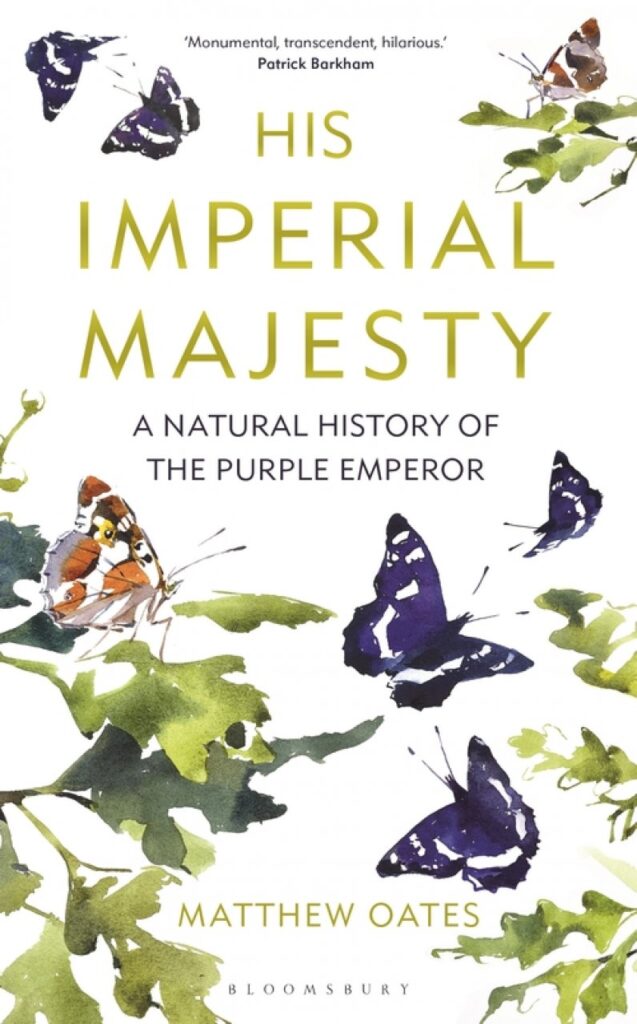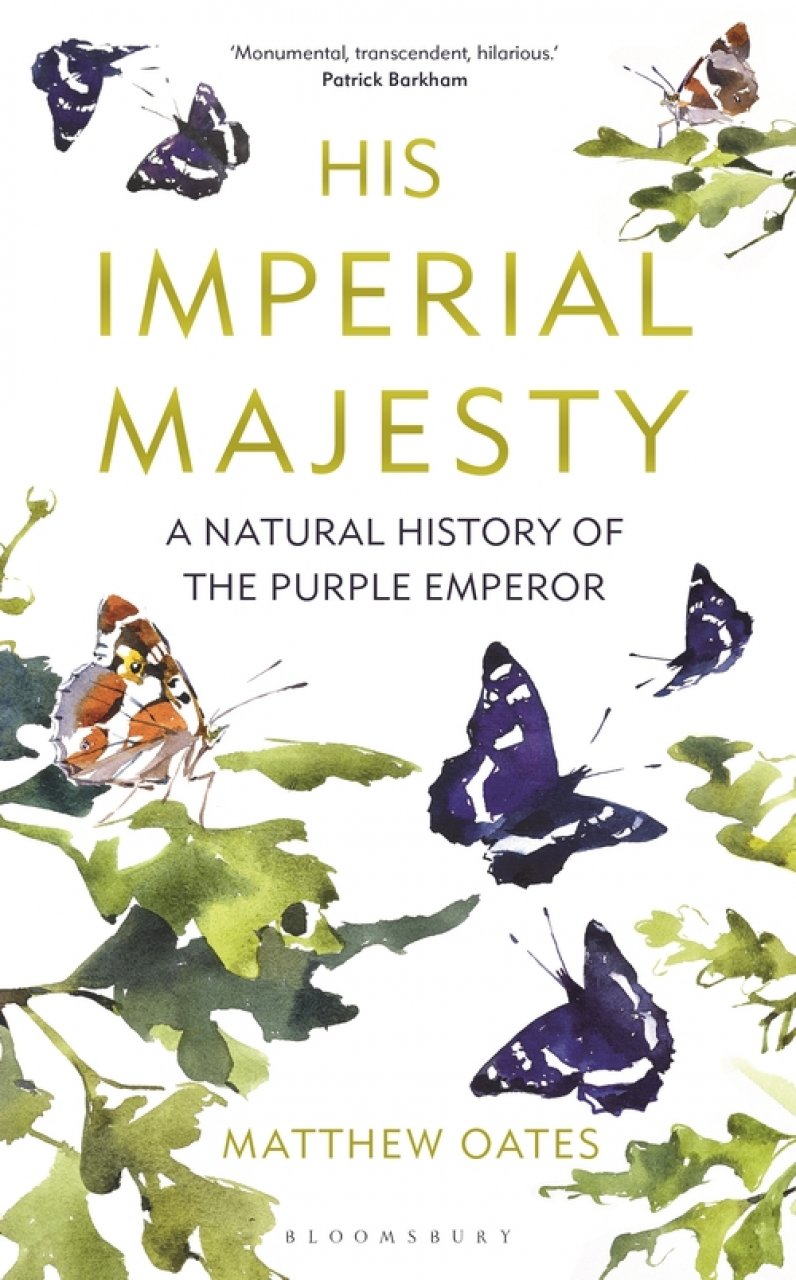With its beautiful jacket cover and subject matter, His Imperial Majesty conjures intrigue from the off. Delving page by page into the natural history of one of Britain’s most spectacular and mysterious insects, Matthew Oates reflects on almost 50 years of personal observations, study, musings, and what is, quite frankly, obsession, setting you on course for a riveting and riotous rollercoaster ride through the life and times of this remarkable butterfly. Part autecology, part monograph and part impassioned love poem to a species that has captured the author’s heart, the pages offer an enjoyable blend of the Purple Emperor’s recorded history, biology, ecology and conservation. Intermixed with these is an exploration of how this species can provoke a range of human emotions, not just in the author and fellow ‘Emperor-philes’, but also for many collectors and lepidopterists that came before.
Oates describes the penchant for hunting His Imperial Majesty, the male Purple Emperor, by collectors during the 19th and 20th centuries. Thankfully, attempts to catch the species were often foiled owing to the erratic behaviour of the butterflies, moving too quickly to be captured and often skirting high above the reach of nets.
During the modern era the barbarity of trophy-collecting was recognised, interest moving instead to conservation. With greater absorption came understanding; Oates relates how the spread of forestry throughout the 20th century, combined with target-driven conservation management practices for other species of butterfly and bird, led to the loss of this species from large swathes of the landscape. Thanks to a serendipitous suite of events, including official and unofficial releases, bespoke conservation management, and natural regeneration of sallows due largely to neglect, the Purple Emperor began to spread naturally during the late 1990s and 2000s. The Knepp Estate, home of the famous rewilding project where Oates has volunteered since the early days, altered understanding of the Purple Emperor, chiefly by revealing the butterfly’s preference for willow scrub.
Observations, through hard-won patience and perseverance by Oates, his naturalist partner Neil Hulme and other enthusiasts have provided further understanding of these shy but belligerent insects. Just finding each life stage is difficult enough, but accounts of the behaviour of the caterpillars and adults are where the book comes alive, as detailed study mixes with anthropomorphism to explain how this species has taken its place as the royalty of British lepidoptera.
Oates reveals the truly fearless way in which the males spend their few short weeks, equivalent to a painted Mohawk warrior continuously ready for battle, willing to fight practically anything that gets in their way of a chance to mate with the shy and elusive females. Evidence from his and fellow Emperor-philes’ observations, including from Notes and views of the Purple Emperor and Ken Wilmot’s long-term studies, helps to explain the behavioural traits of the species.
The generosity of the book is not just in the enjoyable narrative but also in the sections providing useful tips and guidance on where (including an invaluable appendix detailing the counties where you may find the species) and how (from searching the willow canopy from late June to early July, looking for oak sap runs, or attracting the butterfly down to feed on vile substances such as dog faeces, fox scat or, as the author trialled and attested, oriental shrimp paste) you may find the Purple Emperor. Although the discovering of Purple Emperors provides personal pleasure, the advice has wise intent, too, as the more we know about the species the more tools we have for ensuring its long-term survival. If Oates gets his way, Britain will be turned a shade of purple long into the future.

